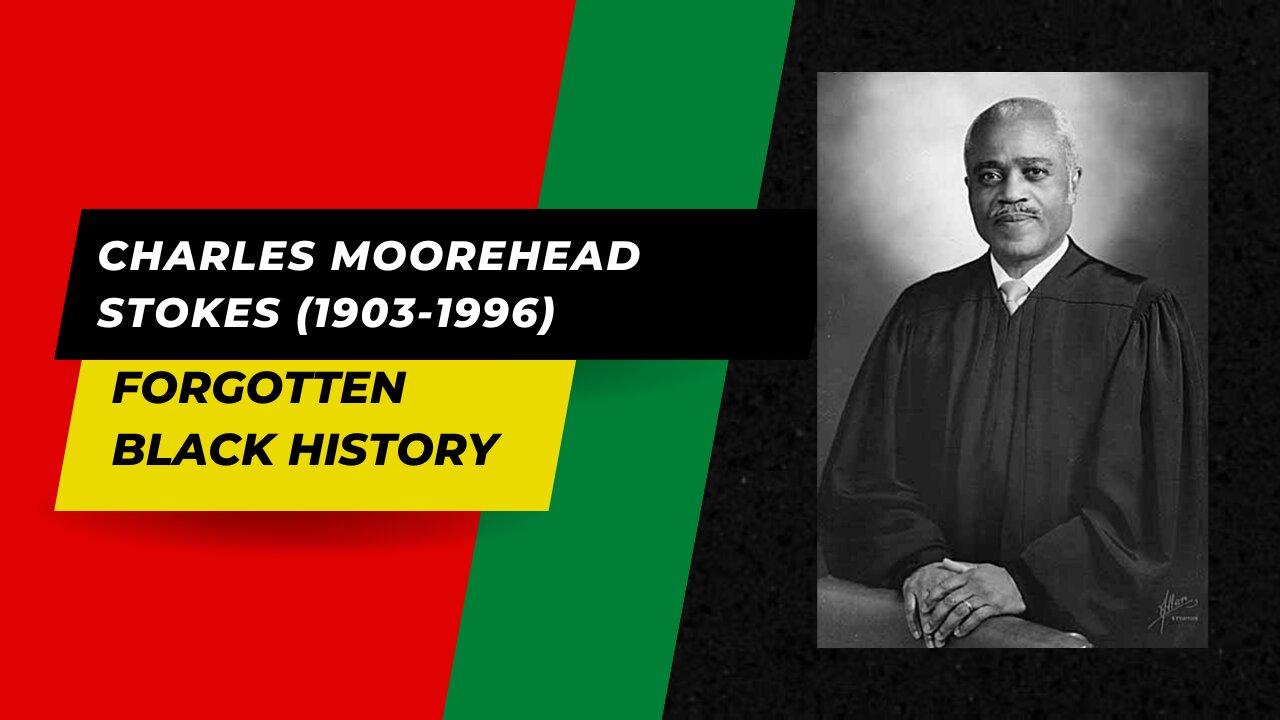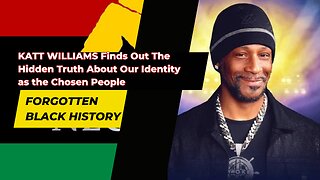Premium Only Content

CHARLES MOOREHEAD STOKES (1903-1996)
This video is brought to you by, Fiverr: https://go.fiverr.com/visit/?bta=500952&brand=fiverrhybrid
Fiverr Learn: https://go.fiverr.com/visit/?bta=500952&brand=fiverrlearn
Fiverr Business: https://go.fiverr.com/visit/?bta=500952&brand=fb
Become a Fiverr Affiliate: https://go.fiverr.com/visit/?bta=500952&brand=fiverraffiliates
Fiverr Workspace: https://go.fiverr.com/visit/?bta=500952&brand=workspace
Welcome to "Forgotten Black History". On this channel we talk about special places, events and people in Black History, This page serves as an index to the prominent figures featured throughout the Black History society. Black history is the story of African Americans in the United States and elsewhere. We want to celebrate, remind, and pay respect to not only African Americans but Black people of all races and backgrounds. We hope you subscribe to join the family, so we can grow a small community to help people of all races know just how special black people actually are in the world. Thank you for taking the time out to visit our channel. We hope you subscribe, if you hadn't already. We wish you peace and love, and for you to stay safe out there.
#BlackHistory #ForgottenBlackHistory #BlackPeople
Check out our Rumble page for exclusive videos: https://rumble.com/c/c-1788327
Charles Moorehead Stokes, one of three sons of Rev. Norris Jefferson Stokes and Myrtle Garner Stokes, was born on February 1, 1903 in Pratt, Kansas. He graduated from the University of Kansas Law School in 1931 and soon after opened his law practice in Pratt but later moved to Topeka to serve as an assistant attorney for the Kansas Commission of Revenue and Taxation.
Stokes said he became a Republican as a young man because he father was and always reminded him that Lincoln freed the Slaves, while the Democrats were the Confederacy at the time. He said he became a lawyer to have a skill so that he would not be broke and dependent upon the charity and benevolence of others, like his father had been as a minister during the Depression and Jim Crow eras.
Charles M. Stokes moved his law practice to Seattle in 1943. When Stokes arrived in Seattle, the state had fewer than five black attorneys. He also served as vice president of the Young Republican National Federation.
Stokes’s long career in electoral politics began in 1950 when he ran successfully for the Washington State Legislature. Upon his election, he became the third African American to sit in the legislature (after William Owen Bush of Olympia and John H. Ryan of Tacoma) but he was the first African American to represent the predominately black 37th District in Seattle. Stokes was re-elected in 1952 and 1956. In 1952, he spoke from the platform of the Republican National Convention on behalf of General Dwight D. Eisenhower’s candidacy. Eight years later, he headed the Nelson Rockefeller Washington State Presidential Primary campaign.
Stokes introduced the bill for a state lottery in 1957 and in the same year co-sponsored the Civil Rights Omnibus Bill which helped place Washington in the forefront of civil rights recognition and enforcement in the 1950s. During his three-year term in the state legislature, Stokes was named outstanding freshman GOP House member from King County. He received a standing ovation from the legislature when he spoke on the willingness of black people to fight in the Korean War despite Paul Robeson’s stance against the war. The speech was aired on the Voice of America.
-
 17:19
17:19
Forgotten Black History
1 month agoKATT WILLIAMS Finds Out The Hidden Truth About Our Identity as the Chosen People
1491 -
 4:13:39
4:13:39
Nobodies Gaming
13 hours ago $32.02 earnedNobodies : Rumble Gaming MARVEL RIVALS
179K9 -
 24:08
24:08
MYLUNCHBREAK CHANNEL PAGE
1 day agoUnder The Necropolis - Pt 4
168K31 -
 19:52
19:52
Adam Does Movies
10 hours ago $4.92 earnedEmilia Pérez Movie Review - It's Uniquely Awful
48.9K3 -
 20:07
20:07
BlackDiamondGunsandGear
16 hours agoSPRINGFIELD ECHELON COMPACT / NOT GOOD
48.8K3 -
 1:05:06
1:05:06
Man in America
17 hours agoThe Terrifying Truth Behind Chemical Fog, Wildfire Smoke & Chemtrails w/ Dr. Robert Young
48.4K62 -
 2:54:47
2:54:47
Tundra Tactical
10 hours ago $14.46 earnedSHOT Show 2025 Wrap Up!! On The Worlds Okayest Gun Live Stream
77K4 -
 LIVE
LIVE
Right Side Broadcasting Network
1 day agoLIVE REPLAY: President Donald J. Trump Holds His First Rally After Inauguration in Las Vegas - 1/25/25
3,264 watching -
 2:55:24
2:55:24
Jewels Jones Live ®
1 day agoWEEK ONE IN REVIEW | A Political Rendezvous - Ep. 107
137K42 -
 1:33:29
1:33:29
Michael Franzese
1 day agoTrump Wastes No Time: Breaking Down Trump’s First Week Executive Orders | LIVE
144K114